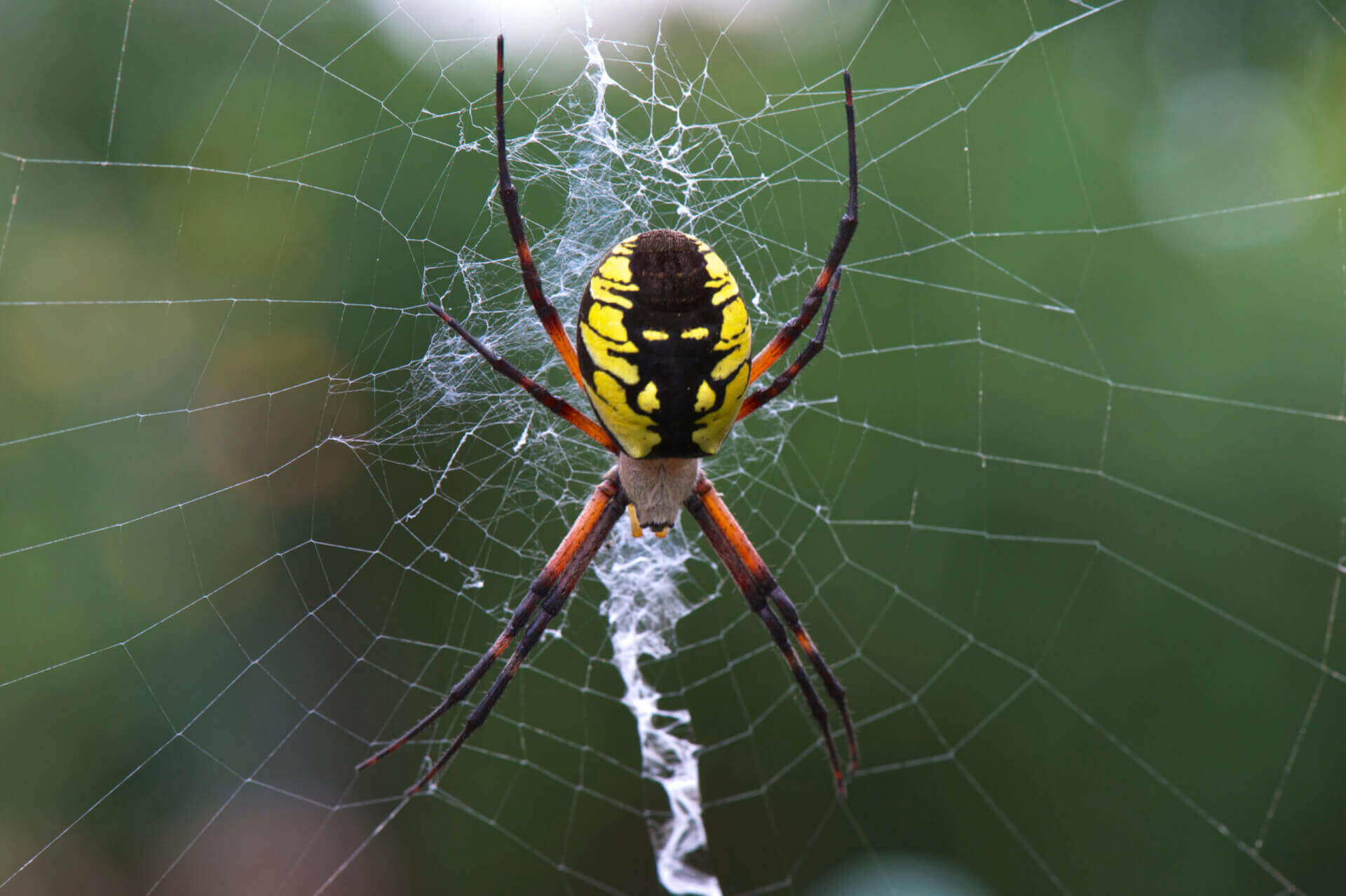Garden Spider Facts & Information
Everything you need to know about garden spiders
what do Garden Spiders look like

The garden spider is one of the more easily recognized spiders. It is usually grey-brown or reddish-brown in color, with a large white cross (made up of pale spots and streaks) on its abdomen. Females are twice the size of males. While their name seems to indicate they would rather be in your garden, they can make their way inside a business or home. In early spring, the spiderlings, numbering from 500 to 1,000, emerge from the egg sac. Many of them will succumb to cannibalism or be eaten by mud-dauber wasps. Those that do survive usually go unnoticed until they reach maturity in the late summer.
Also known as orb weaver spiders a dead giveaway that one is nearby is their large, circular webs. Orb spiders spin complex, organized webs that can reach up to three feet in diameter using radial strands of silk that look like spokes on a wheel. You can call in a spider exterminator but make sure they are bringing with them more than just spider control tactics.Not the spider you have?
Also known as orb weaver spiders a dead giveaway that one is nearby is their large, circular webs. Orb spiders spin complex, organized webs that can reach up to three feet in diameter using radial strands of silk that look like spokes on a wheel. You can call in a spider exterminator but make sure they are bringing with them more than just spider control tactics.Not the spider you have?
Where Are Garden Spiders Found
Many may wander into our homes by mistake, carried in on clothing, accidentally flying into windows, or even transported across continents in our food, but few stay and take up residences. Some spider species have made themselves comfortable in our houses. Like thousands of other spider species found in our yards and gardens here in the United States, the garden spider is considered to be very beneficial. It consumes lots of common landscape pests, as well as bees, grasshoppers, moths, beetles, wasps, and just about any other flying insect that gets trapped in its orb web. So, if you see them in your garden, leave them alone. They are helping you out.
How Did I Get Garden Spiders?
The presence of garden spiders is usually accidental. Garden spiders may enter structures in search of prey. Although they are not inclined to be permanent residents in structures, they often stay once inside. Any spider can hitch a ride in on a package or someone’s jacket or backpack. And spiders as well as many other pests can squeeze in through cracks and crevices and tears especially if they’re looking for shelter or food. They aren’t associated with cleanliness or lack thereof and they are not a health threat. Doesn’t mean you want them there, though.
What Problems Do Garden Spiders Cause
Spiders – no matter what species – get a bad rap for just being scary looking. And despite their name, garden spiders will happily come into your business or home. Their webs may be out of reach of your broom, making for an unkempt look in a business or home. They are integral in keeping many different pest populations in check – even some spider species! They rarely bother humans and are more afraid of you than you are (or should be) of them. Spider treatments can help keep them in check but an experienced pest control company should be thinking beyond the spiders to include their food sources and work to control them as well.
How Can I Prevent Garden Spiders
Professional exclusion work can help keep all pests out, including garden spiders. Unfortunately, most pests are small, so keeping them out can be difficult. They can scuttle in while you’re bringing the groceries in or if a door is propped open too long. And it doesn’t need to be open for all that long! Once they are in, glue traps can help capture them. But preventing spiders from getting in could be a losing battle. You can minimize with exclusion work and some common sense practices, but to truly take care of nuisances like house spiders, you’ll need a pest control professional.
Why Waltham for Garden Spider Control
We’re passionate about keeping spiders out of your home or business because we live and work here – it’s our neighborhood, too. With our 130 years of experience keeping homes and businesses in Massachusetts, Connecticut, New York, Maine, Vermont, New Hampshire, and Rhode Island safe from pests, Waltham has the experience you can trust.
Satisfaction Guarantee
24-Hour Guaranteed Response
Board Certified Entomologists
Need help with garden spiders?
GET A QUOTE
“Exceptional service. Prompt and professional. Used for both business and home. Very efficient and honest.”
Agawan, MA
